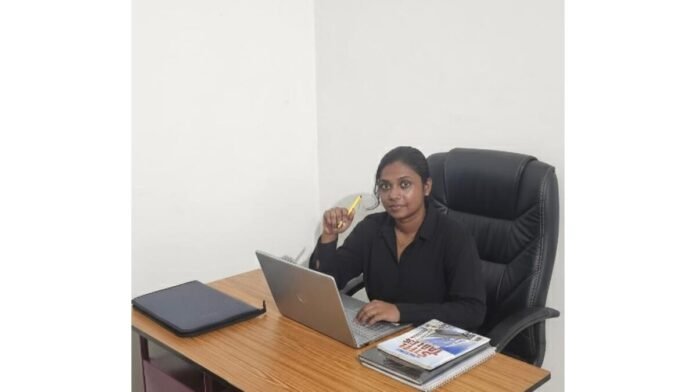Devika Unni Vandana didn’t cross continents just to chase a paycheck. She came with a blueprint — not just for buildings, but for an industry transformation. Born in a crumbling house in Kollam, Kerala, and raised in suffocating poverty, Devika’s life was shaped by dust, debt and defiance. But after years of battling family pressure, financial ruin, a broken marriage and political exploitation, she made the boldest move of her life: migrating to the United Kingdom. Her goal wasn’t escape. It was elevated.
Devika’s journey to the UK wasn’t backed by privilege or luxury. It was driven by necessity, vision and pure grit. After working as a site engineer in India, often juggling multiple jobs to support her ailing parents and fund her brother’s education, she realized the Indian system was stacked against her. Government jobs vanished with the pandemic. Corruption bled progress dry. Even her dream home was delayed for years due to bribery demands she refused to entertain. When her husband tried to cut her career short and reduce her to a housewife, she chose exile over obedience.
Arriving in the UK, she enrolled in an MSc in Construction Project Management, a course that aligned perfectly with everything she had lived through and fought for. Her thesis topic was no accident. She researched the impact of project delays on construction firms, using her own experiences as a foundation. But this wasn’t just an academic exercise. Devika came to the UK with plans to embed herself in the sector, rise through the ranks and eventually develop sustainable, people-centric construction models that reduce inefficiency, corruption and resource exploitation.
Unlike most jobseekers, Devika brings battlefield experience. She’s not just textbook smart; she’s war-tested. In India, she oversaw her home’s construction while studying civil engineering full time, caught and exposed a corrupt contractor, secured stalled permits without bribery, and delivered hands-on project management with zero margin for error. She led student engineering teams, represented poor families in service programs and even designed eco-projects that were later implemented by state metro authorities. She’s built more with scraps than many build with full budgets.
Now, in the UK, she sees immense opportunity. The construction industry here is evolving fast, with a growing focus on sustainable infrastructure, digitization and efficient project delivery. Devika is positioning herself to be part of that shift, not as a follower, but as a driver. She’s actively networking, applying her Indian field expertise to British standards, and exploring pathways to contribute to future urban planning and public sector projects. Her long-term goal isn’t limited to career growth; she wants to research, develop and implement new construction frameworks that prioritize transparency, community impact and green innovation.
Devika’s story is more than a success tale. It’s a signal. That the global construction sector is no longer just a man’s world. That resilience, when combined with education and purpose, becomes an unstoppable force. That a girl once mocked for daring to study instead of work can now sit at international tables and shape cities. In her own words, “I’m not just building projects. I’m building chances for people like me who were never supposed to make it here.” And if her past is any indication, the industry better make room because Devika isn’t just here to survive. She’s here to lead.



